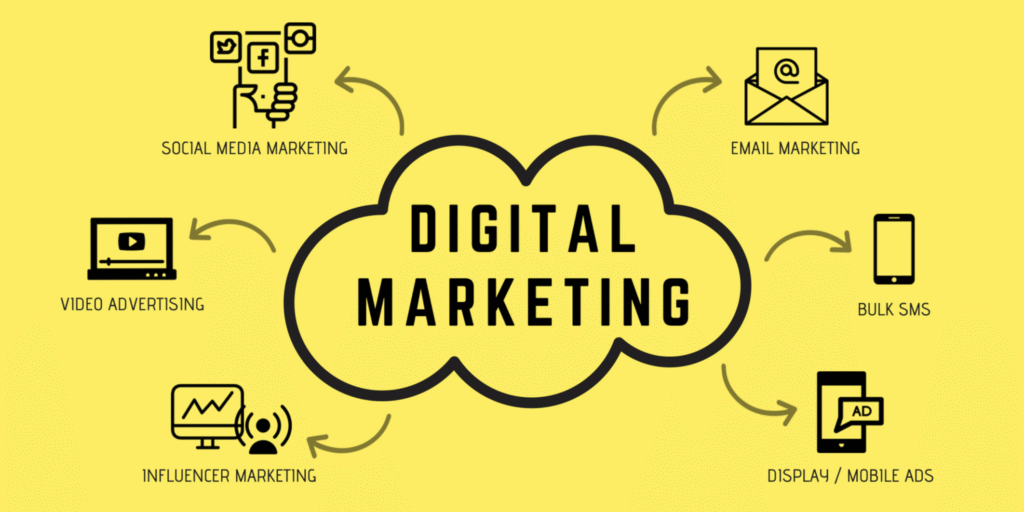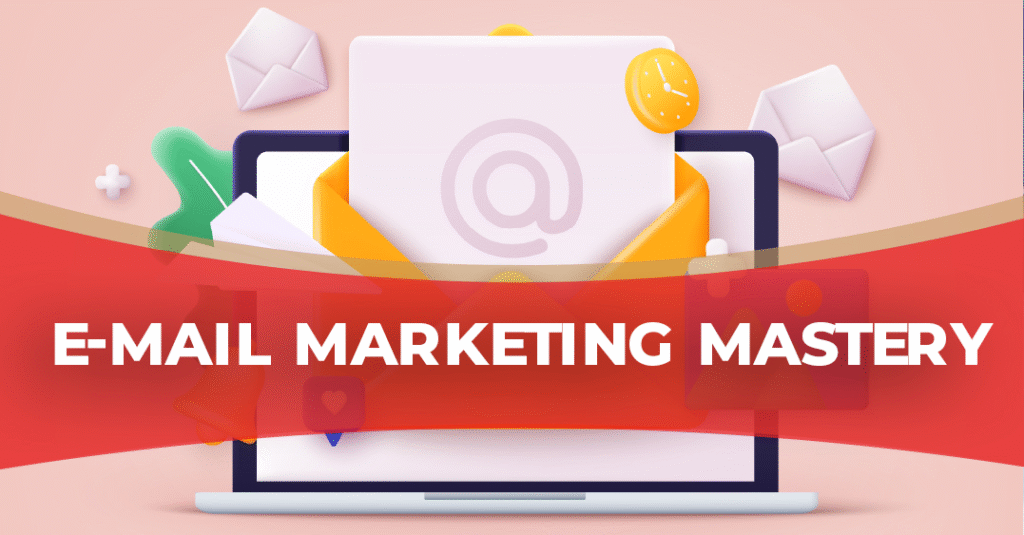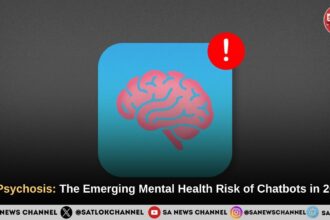In today’s world, digital marketing isn’t optional—it’s how businesses meet customers where they live: online. With smart strategies, you can target the right people, track results in real-time, and grow fast. This comprehensive guide delivers actionable tactics that drive measurable results, from SEO fundamentals to advanced conversion optimization.
- Understanding Digital Marketing Fundamentals
- Search Engine Optimization (SEO) Strategies
- Social Media Marketing Excellence
- Content Marketing That Converts
- Email Marketing Mastery
- Pay-Per-Click (PPC) Advertising Success
- Analytics and Performance Measurement
- Integration and Future-Proofing Your Strategy
- Advanced Customer Segmentation and Personalization
- Conclusion and Action Plan
- Beyond Metrics: Discovering Purpose in the Digital Age
“The best marketing doesn’t feel like marketing.” – Tom Fishburne
Understanding Digital Marketing Fundamentals
Digital marketing encompasses all marketing efforts using electronic devices and internet platforms. Unlike traditional marketing’s spray-and-pray approach, digital channels offer precise targeting, real-time optimization, and measurable ROI.
The customer journey now spans multiple touchpoints. Someone might discover your brand through social media, research via Google, subscribe to your email list, and finally purchase after seeing a retargeted ad. Understanding this journey helps you allocate resources effectively across channels.
Modern consumers expect personalized experiences. They want relevant content at the right moment. Digital marketing makes this possible through data collection, audience segmentation, and automated messaging systems.
The Digital Marketing Ecosystem
Today’s digital landscape consists of interconnected channels that work synergistically:
- Owned media includes your website, blog, email list, and social media profiles. You control these assets completely. They form your foundation for long-term growth.
- Earned media encompasses mentions, shares, reviews, and organic social engagement. This builds credibility through third-party validation.
- Paid media involves advertising spend across platforms like Google Ads, Facebook, and influencer partnerships. It accelerates reach and delivers immediate results.
The most successful strategies integrate all three types, creating a comprehensive ecosystem that nurtures prospects from awareness to advocacy.
Search Engine Optimization (SEO) Strategies
SEO drives organic traffic by improving your website’s visibility in search results. It’s a long-term strategy that builds sustainable traffic without ongoing ad spend.
Keyword research forms SEO’s foundation. Use tools like SEMrush or Ahrefs to identify terms your audience actually searches. Focus on search intent—what users want when they type specific queries.

Content optimization goes beyond keyword stuffing. Google’s algorithms now prioritize expertise, authoritativeness, and trustworthiness (E-A-T). Write comprehensive, original content that genuinely helps users solve problems.
Technical SEO Essentials
Site speed directly impacts rankings and user experience. Google’s Core Web Vitals measure loading performance, interactivity, and visual stability. Use tools like PageSpeed Insights to identify improvement opportunities.
Mobile-first indexing means Google primarily uses mobile versions for ranking. Ensure your site loads quickly and functions perfectly on smartphones and tablets.
Schema markup helps search engines understand your content context. Implement structured data for products, reviews, events, and local business information to enhance search visibility.
Here’s how different SEO factors influence your ranking potential:
| SEO Factor | Importance Level | Impact Timeline | Difficulty Level |
| Quality Content | Critical | 3-6 months | Medium |
| Technical Setup | High | 2-4 weeks | High |
| Backlink Profile | Critical | 6-12 months | High |
| User Experience | High | 1-3 months | Medium |
| Local Signals | Medium | 2-8 weeks | Low |
On-Page Optimization Tactics
Title tags remain crucial ranking factors. Include primary keywords naturally while staying under 60 characters. Make them compelling enough to drive clicks from search results.
Header structure (H1, H2, H3) helps both users and search engines understand content hierarchy. Use headers to break up text and include semantic keywords that support your main topic.
Internal linking distributes page authority throughout your site. Link to relevant pages using descriptive anchor text. This keeps users engaged while helping search engines discover and index content.
Key SEO Takeaways:
• Focus on search intent, not just keyword density
• Prioritize technical performance alongside content quality
• Build topical authority through comprehensive coverage
Social Media Marketing Excellence
Social media marketing builds brand awareness, drives engagement, and generates leads through strategic content distribution and community building.
Platform selection matters more than presence everywhere. Research where your target audience spends time. B2B companies often find more success on LinkedIn, while lifestyle brands thrive on Instagram.

Content strategy should follow the 80/20 rule: 80% valuable, educational, or entertaining content, 20% promotional. This builds trust and keeps audiences engaged without feeling overwhelmed by sales pitches.
Platform-Specific Strategies
- Facebook offers sophisticated targeting options and diverse content formats. Long-form posts, live videos, and community groups perform well. Facebook’s algorithm favors content that generates meaningful conversations.
- Instagram prioritizes visual storytelling. High-quality images, Stories, and Reels drive engagement. Use hashtags strategically—mix popular tags with niche-specific ones to maximize discoverability.
- LinkedIn serves professional audiences seeking industry insights. Share thought leadership content, company updates, and professional achievements. Publishing articles directly on the platform can significantly expand reach.
- TikTok rewards creativity and authenticity over production value. Short, entertaining videos that follow trends while showcasing personality often go viral.
Social Media Advertising Optimization
Paid social advertising allows precise audience targeting based on demographics, interests, behaviors, and custom audiences from your existing customer data.
Start with small budgets to test different ad formats, audiences, and creative approaches. Video ads consistently outperform static images across most platforms.
Retargeting campaigns re-engage people who visited your website but didn’t convert. These audiences show higher intent and typically generate better ROI than cold traffic campaigns.
Social Media Success Factors:
• Consistency in posting schedule and brand voice
• Active engagement with comments and messages
• Data-driven optimization of content and advertising
Content Marketing That Converts
Content marketing attracts and retains audiences by providing valuable information that addresses their needs, challenges, and interests.
Blog content serves multiple purposes: SEO traffic generation, social media sharing, email newsletter material, and lead magnet foundations. Write articles that answer specific user questions with original insights or proprietary data.

Video content consumption continues growing across all demographics. YouTube serves as the second-largest search engine, making video SEO crucial for visibility. Create how-to tutorials, product demonstrations, and behind-the-scenes content.
Customer Avatar Development
Successful content requires deep audience understanding. Create detailed customer personas including demographics, goals, challenges, preferred content formats, and buying triggers.
Sample Customer Avatar: Sarah, 34, Marketing Manager at a mid-size SaaS company.
Goals: Increase lead quality and prove marketing ROI.
Challenges: Limited budget, need for quick results.
Prefers: Case studies, video tutorials, email newsletters.
Buying triggers: Peer recommendations, free trials, clear ROI data.
Content Distribution Strategy
Creating content is only half the equation. Distribution amplifies reach and drives results. Repurpose single pieces of content across multiple channels and formats.
Transform blog posts into social media graphics, video scripts, podcast episodes, and email newsletter sections. This maximizes your content investment while reaching audiences who prefer different consumption methods.
Guest posting on industry publications expands reach to new audiences while building valuable backlinks for SEO. Focus on high-authority sites that serve your target demographic.
Content performance varies significantly by type and platform:
| Content Type | Engagement Rate | Best Platforms | Production Time | ROI Timeline |
| Blog Posts | 2-4% | Website, LinkedIn | 3-5 hours | 3-6 months |
| Videos | 6-12% | YouTube, Instagram | 5-10 hours | 1-3 months |
| Infographics | 4-8% | Pinterest, LinkedIn | 4-6 hours | 2-4 months |
| Case Studies | 8-15% | Website, Sales | 6-12 hours | 1-2 months |
Content Marketing Essentials:
• Solve specific problems your audience faces
• Maintain consistent publishing schedules
• Repurpose content across multiple channels and formats
Email Marketing Mastery
Email marketing delivers the highest ROI among digital channels, averaging $36-42 return for every dollar spent. Success depends on list building, segmentation, and automation.

Lead magnets incentivize email subscriptions by offering valuable resources. Create ebooks, templates, checklists, or exclusive content that addresses specific audience pain points.
Segmentation dramatically improves performance. Don’t send identical messages to everyone. Segment by purchase history, engagement level, demographics, or behavioral triggers.
Advanced Segmentation Models
- Behavioral segmentation groups subscribers based on actions: frequent buyers, window shoppers, inactive users. Tailor messaging to each group’s engagement patterns.
- Lifecycle segmentation addresses where customers are in their journey: new subscribers, active customers, at-risk accounts. Each stage requires different messaging approaches.
- Psychographic segmentation considers values, interests, and motivations beyond demographics. This enables highly personalized messaging that resonates emotionally.
Email Automation Workflows
Welcome series introduce new subscribers while setting expectations. Send 3-5 emails over 7-10 days covering your story, best content, and clear next steps.
Abandoned cart sequences recover lost sales through strategic follow-up. Send reminders at 1 hour, 24 hours, and 72 hours with increasing incentives.
Re-engagement campaigns target inactive subscribers. Offer exclusive content, discounts, or simply ask what they’d like to receive. Remove non-responders to maintain list health.
Post-purchase automation builds customer lifetime value. Send thank you messages, usage tips, complementary product suggestions, and review requests.
Email Marketing Optimization:
• Build segments based on behavior, not just demographics
• Test subject lines, send times, and content formats
• Focus on deliverability through list hygiene and engagement
Pay-Per-Click (PPC) Advertising Success
PPC advertising provides immediate visibility and traffic through paid search and social media placements. You pay only when users click your ads, making it cost-effective when properly managed.

Keyword research for PPC differs from SEO. Target commercial intent keywords that indicate buying readiness. “Plumber near me” shows higher intent than “how to fix a leaky faucet.”
Ad copy must grab attention within character limits while clearly communicating value propositions. Include primary keywords, unique selling points, and compelling calls-to-action.
Campaign Structure and Optimization
Account structure impacts performance and management efficiency. Organize campaigns by product categories, geographic locations, or customer segments. Create tightly themed ad groups with relevant keywords and ads.
Quality Score affects both ad position and costs. Google rewards relevant, well-targeted ads with lower click costs and better placements. Focus on keyword relevance, ad copy quality, and landing page experience.
Landing page optimization is crucial for conversion. Ensure page content matches ad promises. Use clear headlines, benefit-focused copy, and prominent call-to-action buttons. Remove navigation distractions that might cause visitors to leave.
Budget Management Strategies
Start with conservative budgets while testing campaign performance. Gradually increase spend on profitable campaigns and pause underperforming ones.
Dayparting adjusts bids based on when your audience is most active. B2B campaigns often perform better during business hours, while consumer products might see evening and weekend success.
Negative keywords prevent ads from showing for irrelevant searches. Regularly review search term reports and add negatives to improve targeting efficiency and reduce wasted spend.
PPC Success Factors:
• Match keyword intent with appropriate ad copy and landing pages
• Continuously test and optimize based on performance data
• Focus on conversion value, not just click volume
Analytics and Performance Measurement
Data-driven decision making separates successful marketers from those who waste resources on ineffective tactics. Track metrics that directly relate to business objectives, not vanity metrics.
Google Analytics 4 provides comprehensive website performance insights. Set up conversion tracking for key actions: purchases, lead form submissions, email signups, and phone calls.

Attribution modeling helps understand how different channels contribute to conversions. Last-click attribution often undervalues top-funnel activities like content marketing and social media awareness campaigns.
Key Performance Indicators by Channel
- SEO metrics include organic traffic growth, keyword rankings, click-through rates, and organic conversion rates. Focus on traffic quality over quantity.
- Social media KPIs encompass reach, engagement rate, follower growth, and social-driven website traffic. Track brand mention sentiment and share of voice against competitors.
- Email marketing measurements include list growth rate, open rates, click rates, and email-driven revenue. Segment performance analysis reveals which audiences respond best to different message types.
- PPC indicators cover cost per click, quality score, conversion rate, and return on ad spend (ROAS). Monitor search impression share to identify growth opportunities.
Customer Journey Analysis
Align marketing strategies with funnel stages to maximize effectiveness. Use content marketing for awareness, email nurturing for consideration, and PPC for conversion.
Multi-touch attribution reveals how channels work together. A customer might discover you through social media, research via organic search, and convert after receiving an email promotion.
Customer lifetime value (CLV) justifies higher acquisition costs for valuable segments. Calculate CLV by multiplying average order value by purchase frequency and customer lifespan.
Performance benchmarks help evaluate success relative to industry standards:
| Channel | Key Metric | Good Benchmark | Measurement Frequency |
| SEO | Organic Traffic Growth | 10-20% monthly | Weekly |
| Open Rate | 20-25% | Per Campaign | |
| Social | Engagement Rate | 1-3% of followers | Daily |
| PPC | ROAS | 4:1 minimum | Daily |
Analytics Best Practices:
• Set up proper conversion tracking from day one
• Focus on revenue-driving metrics over vanity numbers
• Use data to inform strategy adjustments, not just reporting
Integration and Future-Proofing Your Strategy
Successful digital marketing requires channel integration rather than siloed approaches. Your SEO content should support social media strategy, email campaigns should drive website traffic, and PPC should complement organic efforts.
Cross-channel consistency builds brand recognition and trust. Maintain consistent messaging, visual identity, and value propositions across all touchpoints.
Omnichannel customer experiences meet users wherever they are in their journey. Someone might discover you on Instagram, research on your website, join your email list, and purchase after seeing a retargeted Facebook ad.
Emerging Technology Integration
Artificial intelligence streamlines many marketing tasks. Use AI tools like ChatGPT for content ideation, Jasper for copywriting assistance, and Canva for visual content creation.
Marketing automation platforms integrate email, social media, and CRM data to deliver personalized experiences at scale. Tools like HubSpot or Marketo can nurture leads automatically based on behavioral triggers.
Voice search optimization becomes increasingly important as smart speakers gain adoption. Optimize for natural language queries and local search terms.
Compliance and Privacy Considerations
Privacy regulations like GDPR and CCPA require transparent data collection practices. Always include clear opt-ins for email marketing and give users control over their data. Use tools like Cookiebot for website compliance.
First-party data collection becomes more valuable as third-party cookies phase out. Build direct relationships with customers through email lists, loyalty programs, and account creation incentives.
Local SEO Considerations
Local businesses must optimize for “near me” searches and Google My Business listings. Encourage customer reviews, maintain accurate NAP (name, address, phone) information, and create location-specific content.
Future-Proofing Strategies: • Diversify traffic sources to reduce platform dependency • Build owned media assets you control completely • Stay informed about privacy regulation changes
Advanced Customer Segmentation and Personalization
Behavioral targeting outperforms demographic segmentation for conversion optimization. Track user actions like page views, download history, and purchase patterns to create dynamic audience segments.

Dynamic content personalization adapts website experiences based on visitor characteristics. Show different products, testimonials, or calls-to-action based on traffic source, geographic location, or previous interactions.
Predictive analytics identify high-value prospects before they convert. Use machine learning algorithms to score leads based on engagement patterns and similarity to existing customers.
Advanced Targeting Techniques:
• Combine first-party data with lookalike audience modeling
• Use progressive profiling to gradually collect customer information
• Implement real-time personalization based on user behavior
Conclusion and Action Plan
Digital marketing success requires strategic integration of multiple channels, continuous optimization based on data insights, and adaptation to evolving consumer behaviors and platform changes.
Start by choosing one long-term channel like content marketing or SEO for sustainable growth, plus one short-term booster like paid advertising for immediate results. Commit to testing, measuring, and improving for 90 days. Track results rigorously. Adjust strategies based on performance data. Repeat the optimization cycle.
Focus on owned media assets—your website, email list, and content library—that you control completely. These provide stability as algorithms change and new platforms emerge.
The most successful digital marketers balance strategic thinking with tactical execution. They understand their audience deeply, create valuable experiences consistently, and optimize relentlessly based on real performance data.
Your digital transformation starts with taking action today. Choose your initial channels, set up proper tracking, and begin creating value for your target audience. The online marketplace rewards businesses that combine strategic insight with consistent execution.
Beyond Metrics: Discovering Purpose in the Digital Age
Digital marketing may help us connect with audiences and grow our businesses, but it also raises deeper questions—why are we seeking attention, influence, or success in the first place? Beyond algorithms and conversions lies a timeless need for meaning, peace, and inner fulfillment. As we navigate this digital landscape, it’s worth reflecting on our greater purpose and the divine path that leads to true contentment.
For those drawn to such introspection, books like “Gyan Ganga” and “Way of Living“ by Saint Rampal Ji Maharaj offer profound insights into spiritual wisdom, authentic devotion, and the art of living with purpose. In a world driven by data, let us not lose sight of the soul.









